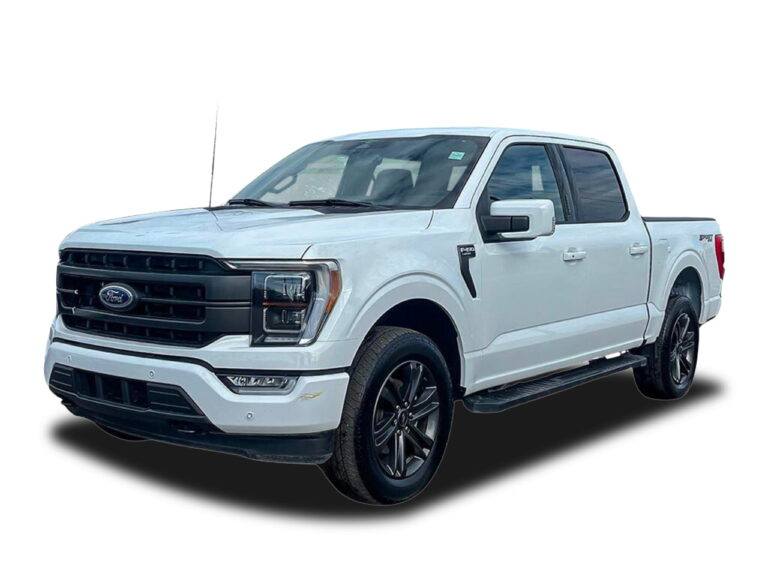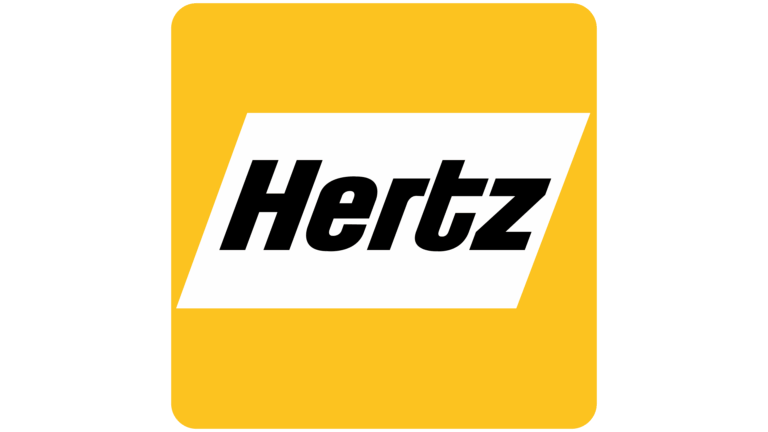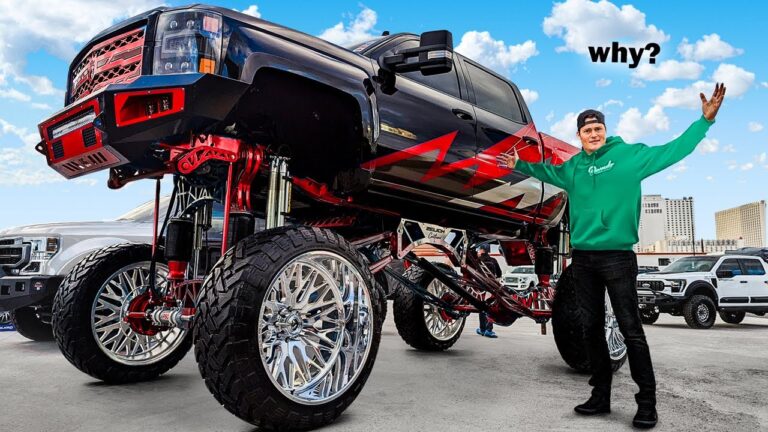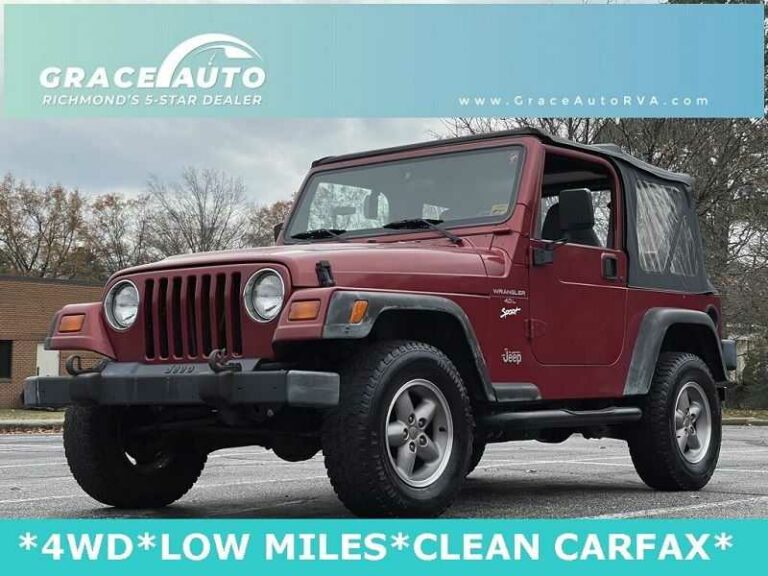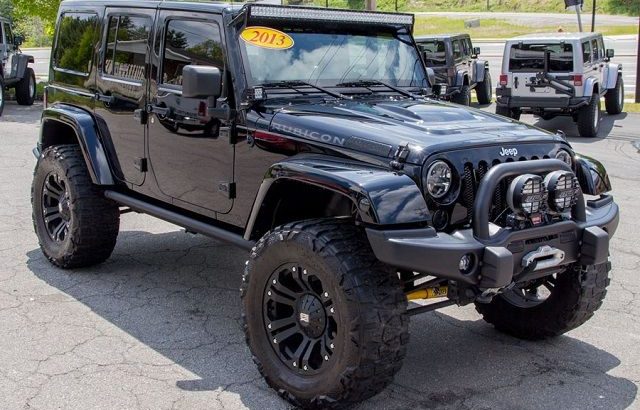Trucks For Sale With Tow Package: Your Ultimate Guide to Towing Capability
Trucks For Sale With Tow Package: Your Ultimate Guide to Towing Capability cars.truckstrend.com
In the vast landscape of vehicles, pickup trucks stand out as workhorses, blending utility with everyday usability. But for many, the true potential of a truck is unlocked only when it’s equipped to haul and tow. Whether you’re dreaming of weekend camping trips with a travel trailer, launching a boat, transporting heavy equipment for work, or simply moving furniture, a truck with a pre-installed tow package is an indispensable asset.
This comprehensive guide will delve deep into the world of "Trucks For Sale With Tow Package," defining what it entails, highlighting its benefits, offering practical advice for selection, and addressing common queries to ensure you make an informed decision.
Trucks For Sale With Tow Package: Your Ultimate Guide to Towing Capability
What Defines a Truck With a Tow Package? Beyond Just a Hitch
While a simple hitch receiver might seem like the primary component, a true factory-installed tow package is a meticulously engineered system designed to ensure safe, stable, and efficient towing. It’s more than just an attachment; it’s a suite of upgrades that fortify the vehicle for the stresses of hauling heavy loads.
Typically, a factory tow package includes:
- Hitch Receiver: The robust metal assembly bolted to the truck’s frame, designed to accept a hitch ball mount or other towing accessories.
- Wiring Harness: Essential for transmitting electrical signals from the truck to the trailer for lights (tail, brake, turn signals) and, in some cases, auxiliary power for charging trailer batteries. Common types include 4-pin (basic lights) and 7-pin (lights plus electric brakes and auxiliary power).
- Heavy-Duty Cooling System: This often includes a larger radiator and/or an auxiliary transmission cooler. Towing places significant strain on the engine and transmission, generating excess heat. Enhanced cooling prevents overheating and extends the lifespan of critical components.
- Transmission Oil Cooler: Specifically designed to keep transmission fluid at optimal temperatures, preventing premature wear and failure, especially important with automatic transmissions.
- Upgraded Brakes: While not always explicitly listed as a separate "tow package" item, trucks designed for towing often come with larger rotors, more robust calipers, or even integrated trailer brake controllers from the factory.
- Trailer Brake Controller (TBC): This electronic device, either integrated into the dashboard or an aftermarket add-on, allows the driver to manually or automatically apply the trailer’s brakes, synchronizing them with the truck’s braking system. Essential for trailers equipped with electric brakes.
- Higher Ratio Axle (often an option within the package): A numerically higher rear axle ratio (e.g., 3.73:1 vs. 3.21:1) provides more torque to the wheels, improving acceleration and pulling power when towing heavy loads, albeit often at the expense of slightly lower fuel economy when unloaded.
- Heavy-Duty Alternator/Battery: To handle the increased electrical demands of a trailer, especially those with auxiliary power needs.
- Specific Tow/Haul Mode: A driving mode that adjusts transmission shift points, engine braking, and sometimes throttle response to optimize performance and control while towing.


The Undeniable Benefits of a Factory-Installed Tow Package
While it’s possible to add aftermarket towing components to almost any truck, opting for a factory-installed tow package offers significant advantages:
- Safety and Integration: Components are designed by the manufacturer to work seamlessly together, ensuring optimal performance, stability, and safety. This integrated approach minimizes the risk of component failure or incompatibility issues.
- Warranty Protection: Factory-installed parts are covered under the vehicle’s warranty, providing peace of mind against defects or premature wear. Aftermarket installations, if not done correctly, can sometimes void parts of your truck’s warranty.
- Optimized Performance: The entire truck is calibrated for towing, from the engine’s power delivery to the transmission’s shift logic and the cooling system’s capacity. This results in a smoother, more controlled towing experience.
- Resale Value: Trucks with factory tow packages are often more appealing to prospective buyers, fetching a higher resale value due to their enhanced utility and proven capability.
- Convenience: You drive off the lot ready to tow, without the hassle, time, or additional cost of sourcing and installing aftermarket parts.
- Correct Towing Capacity: A factory tow package ensures the truck’s advertised towing capacity is accurate and achievable, as all necessary upgrades are in place.

Key Considerations When Choosing a Truck with a Tow Package
Selecting the right truck for your towing needs requires careful thought. Here’s what to evaluate:
-
Understand Your Towing Needs (Weight & Type):
- Gross Trailer Weight (GTW): The total weight of your loaded trailer. This is the most crucial factor. Always aim for a truck with a towing capacity significantly higher than your anticipated GTW (e.g., 20-25% buffer).
- Tongue Weight (TW): The downward force exerted by the trailer’s tongue on the hitch ball. This typically ranges from 10-15% of the GTW. It contributes to the truck’s payload capacity.
- Gross Combined Weight Rating (GCWR): The maximum allowable weight of the fully loaded truck (including passengers, cargo, fuel) plus the fully loaded trailer. Your truck’s GCWR is a non-negotiable limit.
- Type of Trailer: Are you towing a small utility trailer, a boat, a travel trailer, a fifth-wheel, or a gooseneck? Different trailers require different hitch types and capacities. Fifth-wheel/gooseneck setups require specific in-bed hitches and are typically reserved for heavy-duty trucks.
-
Truck Classification:
- Light-Duty (Half-Ton): Examples include Ford F-150, Ram 1500, Chevy Silverado 1500, Toyota Tundra, Nissan Titan. Capable of towing most recreational trailers, small boats, and utility trailers (typically 5,000-13,000 lbs, depending on configuration).
- Heavy-Duty (Three-Quarter Ton & One-Ton): Examples include Ford F-250/F-350, Ram 2500/3500, Chevy Silverado/GMC Sierra 2500/3500. Designed for much heavier loads, larger travel trailers, fifth-wheels, and substantial work equipment (typically 12,000-35,000+ lbs).
- Diesel vs. Gasoline: Diesel engines generally offer higher torque at lower RPMs, making them excellent for sustained heavy towing and better fuel economy when loaded. Gasoline engines are often more affordable upfront and have lower maintenance costs but might struggle more with very heavy loads or steep inclines.
-
Specific Tow Package Features:
- Integrated Trailer Brake Controller: Highly recommended for any trailer with electric brakes.
- Pro Trailer Backup Assist: Ford’s system, for example, makes backing up a trailer incredibly intuitive.
- Trailer Sway Control: Electronically applies brakes or reduces engine power to mitigate trailer sway.
- Camera Systems: Multiple cameras can aid in hitching, monitoring the trailer, and navigating tight spots.
-
New vs. Used:
- New: Offers the latest technology, full warranty, and often better financing options. You can customize the exact tow package you need.
- Used: Can provide significant cost savings. When buying used, thoroughly inspect the tow package components for wear, damage, or signs of misuse. Check for maintenance records, especially regarding transmission fluid changes.
Where to Find Trucks For Sale With Tow Package
- New Car Dealerships: The primary source for new trucks. Salespeople can guide you through available packages and options.
- Used Car Dealerships: Offer a wide selection of pre-owned trucks, often with various tow package configurations. Look for certified pre-owned (CPO) vehicles for added peace of mind.
- Online Marketplaces: Websites like AutoTrader, Cars.com, CarGurus, and local classifieds (Craigslist, Facebook Marketplace) allow you to filter searches specifically for "tow package" or "trailer brake controller."
- Private Sellers: Can offer good deals, but require more due diligence on your part regarding inspection and history checks.
Practical Advice & Actionable Insights for Buyers
- Know Your Numbers: Before you even look at trucks, know the exact weight of what you plan to tow. Don’t guess.
- Read the Sticker: Always refer to the truck’s door jamb sticker or owner’s manual for its specific towing capacities (GVWR, GCWR, Max Trailer Weight). These numbers can vary wildly based on engine, axle ratio, cab configuration, and driveline.
- Don’t Overlook Payload: Remember that the tongue weight of your trailer, plus the weight of all passengers and cargo in the truck, counts against the truck’s payload capacity. Exceeding payload is just as dangerous as exceeding towing capacity.
- Inspect the Hitch: If buying used, check the hitch receiver for excessive rust, cracks, or signs of abuse. Ensure the wiring harness is intact and corrosion-free.
- Test Drive with a Load (if possible): If you’re serious about a truck, and the seller allows, try to test drive it with a weighted trailer similar to what you’ll be pulling. This gives you a real feel for its towing dynamics.
- Get a Pre-Purchase Inspection (Used): Have a trusted mechanic inspect the truck, paying close attention to the transmission, cooling system, brakes, and frame integrity.
- Consider a Weight Distribution Hitch: For travel trailers or heavier conventional trailers, a weight distribution hitch can significantly improve stability and handling, even if your truck doesn’t explicitly require it by capacity.
Challenges and Solutions
- Overestimating Capacity: Buyers often assume a truck can tow "anything." Solution: Research and understand the specific truck’s ratings.
- Ignoring Payload: Focusing only on towing capacity can lead to an overloaded truck. Solution: Calculate total weight (trailer tongue + passengers + cargo) and ensure it’s within the truck’s payload limit.
- Insufficient Braking: Not all trucks with a basic tow package have an integrated brake controller. Solution: Ensure the truck has a TBC, or plan to install an aftermarket one if your trailer has electric brakes.
- Lack of Maintenance: Towing puts extra strain on a truck. Solution: Follow manufacturer’s severe-duty maintenance schedule, especially for transmission fluid, engine oil, and brakes.
Representative Price Ranges for Trucks with Tow Packages (Estimates)
Please note: These are very broad estimates and actual prices can vary wildly based on make, model, year, mileage, condition, specific trim level, engine, and market demand. A factory tow package typically adds $500 – $2,500+ to the cost of a new truck, depending on its components.
| Truck Type / Condition | Estimated Price Range (USD) | Key Considerations |
|---|---|---|
| New Light-Duty (e.g., F-150, Ram 1500) | $40,000 – $75,000+ | Varies significantly by trim, engine, and 2WD/4WD. |
| Used Light-Duty (3-5 years old) | $25,000 – $50,000 | Mileage, condition, and specific features play a huge role. |
| New Heavy-Duty (e.g., F-250, Ram 2500) | $55,000 – $90,000+ | Higher starting price for increased capability. Diesel engines add to cost. |
| Used Heavy-Duty (3-5 years old) | $35,000 – $65,000+ | Often retain value well due to demand for their capability. |
| New Diesel Trucks (any class) | $60,000 – $100,000+ | Diesel engines are a premium option, adding $8,000 – $12,000+ upfront. |
| Used Diesel Trucks (3-5 years old) | $40,000 – $75,000+ | Can be great value but check maintenance history thoroughly. |
Disclaimer: Prices are highly variable and subject to change based on market conditions, location, specific vehicle configuration, and dealer incentives.
Frequently Asked Questions (FAQ) About Trucks With Tow Packages
Q1: Can I just add a hitch to my truck and start towing?
A1: While you can add a hitch, it’s not recommended for significant towing without a proper tow package. A hitch alone doesn’t provide the necessary cooling, braking, or structural reinforcements to safely handle heavy loads, potentially leading to overheating, transmission damage, or unsafe handling.
Q2: What’s the difference between a "tow package" and a "trailering package"?
A2: These terms are often used interchangeably by manufacturers, but "trailering package" might sometimes imply a more comprehensive set of features, including advanced towing technologies like trailer sway control or backup assist, beyond just the basic mechanical upgrades. Always check the specific components listed for any package.
Q3: How do I find my truck’s exact towing capacity?
A3: Look for the sticker on the driver’s side door jamb (usually white or yellow). It will list GVWR, GAWR (Gross Axle Weight Rating), and sometimes specific tire/load information. The maximum towing capacity is typically found in the owner’s manual or on the manufacturer’s website, as it depends on your specific truck’s configuration (engine, axle ratio, 2WD/4WD, cab type).
Q4: Is a diesel truck always better for towing than a gasoline truck?
A4: Not always, but often for heavier loads. Diesel engines excel in generating high torque at low RPMs, making them ideal for pulling heavy trailers up grades and for sustained towing. They also tend to be more fuel-efficient when loaded. For lighter towing needs, a modern gasoline V8 or V6 turbo can be perfectly adequate and more affordable.
Q5: What is "tongue weight" and why is it important?
A5: Tongue weight is the downward force the trailer’s tongue exerts on the hitch ball. It’s crucial for stability; too little can cause trailer sway, too much can overload the truck’s rear axle and reduce steering control. It should generally be 10-15% of the total trailer weight.
Q6: Do I need a weight distribution hitch?
A6: For travel trailers or conventional trailers that cause significant sag in your truck’s rear suspension, a weight distribution hitch is highly recommended. It helps distribute the trailer’s tongue weight more evenly across all axles of the truck and trailer, improving stability, braking, and steering control. Many manufacturers specify their use above a certain tongue weight.
Conclusion
A truck with a factory-installed tow package is more than just a vehicle; it’s a versatile tool that opens up a world of possibilities, from adventurous getaways to demanding work tasks. Understanding the components, benefits, and critical considerations is paramount to making a smart investment. By carefully assessing your needs, researching specific models, and performing due diligence, you can confidently find the perfect truck that’s not just for sale, but truly equipped to handle whatever you need to tow, safely and efficiently, for years to come.


